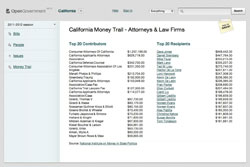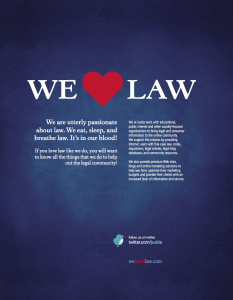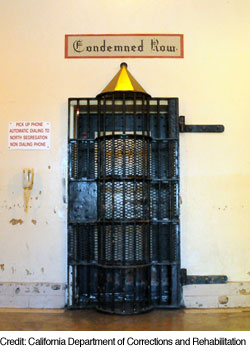 Amazon is no stranger to tax disputes. Thus far, the typical tax claim concerning the online retail goliath involves its obligation to collect sales taxes. Several states have contended that the presence of Amazon Associates within its borders was sufficient to meet the substantial nexus mandated by the Commerce Clause in order for a state to require that a retailer collect sales taxes for purchases by residents within the state. Amazon usually “fixes” that problem by terminating its Associates in the complaining state.
Amazon is no stranger to tax disputes. Thus far, the typical tax claim concerning the online retail goliath involves its obligation to collect sales taxes. Several states have contended that the presence of Amazon Associates within its borders was sufficient to meet the substantial nexus mandated by the Commerce Clause in order for a state to require that a retailer collect sales taxes for purchases by residents within the state. Amazon usually “fixes” that problem by terminating its Associates in the complaining state.
Articles Posted in 2011
 Sheba, Justia’s original HugPug, turns seven today!
Sheba, Justia’s original HugPug, turns seven today!
For those of you lucky enough to have dogs around while you work, you know how wonderful it is to have these four-footed friends at any office.
Sheba, and fellow Justia pugs, Rio and Belle, along with other doggie friends Tank (aka, Le Réservoir Dog) and Mino, bring us plenty of laughs, provide unconditional love and relieve more than a little of life’s daily stresses.
 Last month, while researching a post on the politics and money site, MapLight.org, I came across another interesting online resource: OpenGovernment.org. The site is still very much in beta, but after having had a chance to check it out a little bit more this weekend, I thought it worth mentioning here to our readers.
Last month, while researching a post on the politics and money site, MapLight.org, I came across another interesting online resource: OpenGovernment.org. The site is still very much in beta, but after having had a chance to check it out a little bit more this weekend, I thought it worth mentioning here to our readers.
The goal of OpenGovernment, supported in part by the great folks who run OpenCongress.org, is to provide and promote government transparency on the state, city and local levels. Still in its infancy, the site has launched and tracks the following states: California, Louisiana, Maryland, Texas, and Wisconsin. Given that Justia is based in the Golden State, I decided to take a look at what resources and information are available for California. Similar to the tools available at OpenCongress, OpenGovernment enables users to drill down and learn more about what’s happening in Sacramento by looking at individual bills, following specific legislators in the Senate and Assembly, or browsing by issue. In addition, the site has its own “Money Trail” which lists publicly-available information about campaign contributions made to members of the California state legislature. As examples, check out Big Tobacco, Telecommunications and Casinos and Racetracks. You can also look up your representatives by entering a ZIP code or an address, and one hopes in the future that we’ll also see a mash up geo-tracking feature that displays bills which specifically impact where one lives, similar to the feature found on govpulse.
 Today is Valentine’s Day, and we’d like to take this opportunity to write our valentine to the free legal information projects we love. We’ve talked about all of these projects before, but on this day that celebrates love, it seems a perfect time to praise them again.
Today is Valentine’s Day, and we’d like to take this opportunity to write our valentine to the free legal information projects we love. We’ve talked about all of these projects before, but on this day that celebrates love, it seems a perfect time to praise them again.
Law.gov and Public.Resource.Org
All who love free legal information as much as we do, owe a great deal of gratitude to Carl Malamud of public.resource.org and to the many people working with him on the Law.gov movement. Even before creating the Law.gov project, Malamud had begun gathering free cases and codes and getting them online in a free public archive. We first blogged about his work back in September of 2007, but he has been working to make public domain resources truly public for years.
 Over the last couple of years, he has spearheaded a movement to get the federal government to put all primary legal materials online in bulk on a suggested domain name of law.gov, following the similar federal project known as data.gov which contains bulk data from a variety of government resources. With funding from Google as part of their 10^100 project and the support of many including others listed here, we look forward to the day soon that all primary legal materials are truly free and available to all.
Over the last couple of years, he has spearheaded a movement to get the federal government to put all primary legal materials online in bulk on a suggested domain name of law.gov, following the similar federal project known as data.gov which contains bulk data from a variety of government resources. With funding from Google as part of their 10^100 project and the support of many including others listed here, we look forward to the day soon that all primary legal materials are truly free and available to all.
 Before the California Commission on the Fair Administration of Justice (CCFAJ), then California Chief Justice Ronald George testified that “California’s death penalty system is dysfunctional.” A review of year-end statistics certainly confirms the former Chief Justice’s conclusion.
Before the California Commission on the Fair Administration of Justice (CCFAJ), then California Chief Justice Ronald George testified that “California’s death penalty system is dysfunctional.” A review of year-end statistics certainly confirms the former Chief Justice’s conclusion.
While the death penalty appears to be waning across the country, California remains somewhat of an outlier. In 2010, California courts sentenced 34 persons to death, which accounted for nearly a third of of the death judgments nationwide. And within the state, Los Angeles County, Riverside County and Orange County have become, as the ACLU put it, “killer counties.” They accounted for 83% of the death sentences in 2009, while representing 41% of the population. That year, Los Angeles County sentenced more people to death than any other state, much less any other California county. Of the 34 death cases, almost 62% were from these three counties.
 We’re guessing that Sony has its PS3 controllers in a twist today. Sony has been on a legal warpath against PS3 hackers, who figured out and shared the game maker’s jailbreak code. But all that changed yesterday.
We’re guessing that Sony has its PS3 controllers in a twist today. Sony has been on a legal warpath against PS3 hackers, who figured out and shared the game maker’s jailbreak code. But all that changed yesterday.
That’s when Long Island geek Travis La Marr tweeted Sony’s PS3 jail break code to @TheKevinButler, a twitter account run by Deutsch, the ad agency that Sony hired to run its PS3 campaigns. Kevin Butler is the name of a geeky character who appears in PS3 commercials. It seems that the person managing Butler’s tweets at the ad agency RT’d La Marr’s tweet, include the PS3 jailbreak code, to the world.
 The Justia Dockets & Filings website offers attorneys, journalists, litigants, and legal researchers a simple tool for discovering and tracking litigation in the various federal courts. I find the website to be absolutely indispensable for tracking who is suing and who is being sued.
The Justia Dockets & Filings website offers attorneys, journalists, litigants, and legal researchers a simple tool for discovering and tracking litigation in the various federal courts. I find the website to be absolutely indispensable for tracking who is suing and who is being sued.
For example, I subscribe to the following RSS feeds to track lawsuits involving technology companies, such as Google, Facebook and Apple. You will find a routine stream of complaints over privacy, patents and petty consumer grievances. For the latter group, I sometimes wonder about the plaintiffs who cannot resolve minor disputes without resorting to a federal class action. In this day and age of increasing transparency in the legal system, are these plaintiffs giving sufficient forethought to how a potential future employer may view their degree of litigiousness over seemingly trivial disputes?
 I know we’re all aware that the Northeast has a lot of snow – and I mean, a lot of snow. What you may not have heard of though is a decision that came down from the Massachusetts Supreme Judicial Court this past July which overturned over a century of law regarding snow and ice removal.
I know we’re all aware that the Northeast has a lot of snow – and I mean, a lot of snow. What you may not have heard of though is a decision that came down from the Massachusetts Supreme Judicial Court this past July which overturned over a century of law regarding snow and ice removal.
Previously, property owners could escape liability if they did not remove “natural” accumulations of ice and snow from their property. Papadopoulos v. Target Corp. abolished this distinction between natural and unnatural snow and ice accumulation. Landowners must now apply the same obligation of reasonable care to this type of hazard as they would to other hazards on their property.
All’s well on paper, but I was curious during a trip to Boston over the weekend to see if the new rules would make any kind of a difference walking around town (as an aside, lying on the ice Saturday night, having fallen in a puddle of of the slushy slippery stuff, I wondered if maybe I had taken my research just a tad too far). The bottom line: even with more people out shoveling early and often, I’m not sure their efforts are any match for this Winter and we’re bound to see an early Spring of personal injury lawsuits.
 The world has changed since the last time Jerry Brown was at the helm of the State of California. First elected to statewide office in 1970, Governor Brown is no stranger to campaigning throughout the “Golden State.” One major difference between the campaign that eventually brought him his first tenure as governor and his 2010 campaign was his use of social media.
The world has changed since the last time Jerry Brown was at the helm of the State of California. First elected to statewide office in 1970, Governor Brown is no stranger to campaigning throughout the “Golden State.” One major difference between the campaign that eventually brought him his first tenure as governor and his 2010 campaign was his use of social media.
Since President Barack Obama’s use of social media in his presidential campaign, many other prospective lawmakers have used social media as a way to get their message out to voters. Social media is becoming increasingly important as traditional marketing channels are becoming less effective. Printed newspaper ads, for example, are costly to run and do not reach the same number of people that a Facebook fan profile or Twitter profile have the possibility of reaching. Social media profiles are almost always free to create. However, most candidates have a paid staff member or team that creates, monitors and updates these profiles on behalf of the candidate.
 In April 2010, Karen McPeters filed a federal class action complaint against Montgomery County, Texas, and LexisNexis seeking to enjoin the county from requiring litigants to file all documents with the court through LexisNexis File & Serve. In the complaint, she alleged that the fees amounted to a poll tax and a denial of due process and equal protection. The Court dismissed her federal claims and declined to exercise supplemental jurisdiction to hear her state claims, suggesting that they are more properly heard by the state courts. We have pulled the filings for the federal case and posted them to Justia Dockets & Filings. (For free! The irony.) McPeters filed in state court on January 25, 2011, according to Courthouse News.
In April 2010, Karen McPeters filed a federal class action complaint against Montgomery County, Texas, and LexisNexis seeking to enjoin the county from requiring litigants to file all documents with the court through LexisNexis File & Serve. In the complaint, she alleged that the fees amounted to a poll tax and a denial of due process and equal protection. The Court dismissed her federal claims and declined to exercise supplemental jurisdiction to hear her state claims, suggesting that they are more properly heard by the state courts. We have pulled the filings for the federal case and posted them to Justia Dockets & Filings. (For free! The irony.) McPeters filed in state court on January 25, 2011, according to Courthouse News.
Courthouse News and 3 Geeks and Law Blog (see also their April post) posted about this case this week, and they have done a great job covering the details and legal analysis—so I’ll leave that to them. I decided to post on about this anyway because I think it’s important that this issue get as much coverage as possible. It highlights the current problems with our pay-to-play legal system in a way that everyone—lawyers and consumers—can understand.
